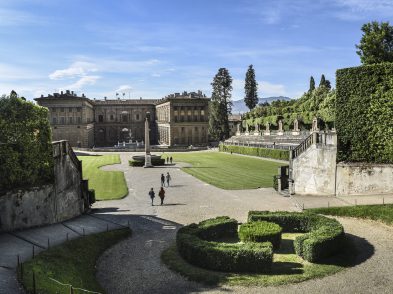Everyone knows something about Italy, whether it be Rome?s ancient architecture, Florence?s splendid art, the canals of Venice, the sway of a cypress tree or the warmth of Italy?s seemingly ever-present sun. Italy is a daydream. It is magic. It?s fresh pasta and verdant hills and lemon trees and espresso enjoyed by fashionable men in perfectly cut suits. It is so fascinating that even its ugliest, most criminal side captivates the imagination.
For years, Italy was a destination where a traveler?s money went a long way, but decades of high inflation and a new European currency have now made it one of the most expensive countries in Western Europe. In spite of this, visitors continue to flood Italy every year, hoping to glimpse the magic first hand. They revel in the traditions, the fashion, the food and the wine; they chuckle good naturedly at the bureaucracy and are attracted to the seemingly laissez-faire attitude of its people. Italy is often excused from debates on its viability on the world stage thanks to the idea that it has always been ?backwards?, a trait that, far from condemning Italy, actually seems to have helped it.
Florence Pettit, a British student who studied in Florence echoed this sentiment, ?No one can deny that Italy has some serious problems but this upside-down way of living is part of Italy?s national identity and the way it has always been; a high-tech, efficient, straightforward Italy would simply not be the same.?
Italy?s national identity was called into question with Ian Fisher?s recent New York Times article ?In a Funk, Italy Sings an Aria of Disappointment?. He made waves with his claim that Italy?s malessere or ?malaise? has created a country full of depressed, unhappy people with little hope for the future.
How are we to explain the disconnect between Italy?s glamorous global image and its apparently less-than-thrilling reality? How does the contradiction sit with foreign residents in Italy; or with a student community that is often removed from the realities of daily life?
Native Pennsylvanian Robert Nordvall has lived in Tuscany for a number of years and is an astute observer of cultural differences between his home country and his adopted one. When asked if he agreed with Fisher?s assessment he replied, ?I think the more interesting question is??should Italy be in funk?? From an objective standpoint, is the situation of the economy, the government, the schools, the health system in Italy worse today than in the past? I hear few Italians talk about how good various public aspects of Italian life were in the past, even during the so-called economic boom of the 1960s?.
Regardless of whether the situation really is worse or whether it is a matter of perspective, many foreign residents are finding it hard to shake the feeling that Italy seems to be lagging behind other European nations in terms of development and promise for the future. ?I?m not asking for genius?a new Michelangelo or Dante, or another Brunelleschi?I?m just hoping that Italy can keep up with the rest of Europe? commented Jeremy Boudreau, an American who has called Florence home for nearly eight years.
Fisher alluded to an Italy that has become an ?exquisite corpse? trampled by tourists?a sentiment that finds its counterpoint in many foreign residents. Michael P., a local art historian has an admitted love/hate relationship with present-day Italy, ?I hate that it is now more difficult to access the things I love,? he said in reference to the high entrance fees now collected by many churches and museums. ?I am now able to enjoy these monuments only when I?m teaching the students who are paying to get inside?.
For their part, foreign students are rarely exposed to the harsher realities of Italian life, a fact likely due to the combination of language barrier and lack of interaction with residents. However, many of their home universities are beginning to bring students into contact with ?real life? through internships and volunteer programs in the community. A former New York University student summed it up best, ?By volunteering at a local elementary school I was able to see firsthand some of the struggles Italian schools face?especially in terms of immigration and lack of funding. It helped me understand that Italy was more than just rolling hills, great wine and high fashion?.
Perhaps bringing these realities to light in the international press was a positive step if it helps Italy in shrugging off the heavy cloak of the mythical dolce vita and moving forward culturally, socially and politically. As a British woman living in Florence noted, ?I?m glad that someone has taken the time to encapsulate Italy?s problems in one article. Not only did it bring them to the world?s attention, but it shook Italy out of its lethargy, if only for a moment?.








